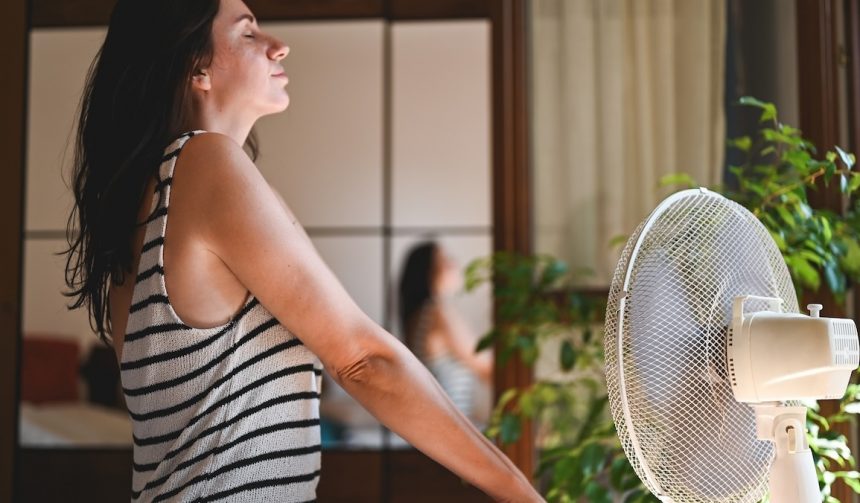If you’ve been wondering whether it’s hot lately or just you, the meteorological reports don’t lie: This summer has been a scorcher for most of the U.S., putting millions of people in danger of things like heat stroke and heat exhaustion. Extreme heat affects almost every aspect of our lives—including how we work, exercise, and yes, how we sleep. In fact, figuring out how to sleep when it’s hot outside is somewhat of an art form, and one that may seem lost amid the climbing temps.
An ideal sleeping temperature typically sits between 65 and 68 degrees Fahrenheit, per the Centers for Disease Control and Prevention (CDC), but that may be difficult to achieve in a home without air conditioning or that struggles to stay cool. Whether you’re sweating in your sleep or are simply too hot to drift off, sleeping in the summertime can feel nearly impossible. But there are still ways to get quality shut-eye in the midst of a heat wave.
Experts like Jenie George, MD, an assistant professor of sleep medicine at the University of Pennsylvania’s School of Medicine, note one thing is key: having a plan before your head hits the pillow. “Having a routine and having these habits in place just ensures success,” she adds. Read on to learn how heat affects our sleeping patterns and how to get better zzzs even when it’s boiling outside.
Why it’s harder to sleep when it’s hot
Heat waves in the U.S. have gotten worse over time, with more lasting longer than average each year, according to the Environmental Protection Agency. This summer, record-breaking heat swept across many American cities, with temps reaching into the 120s (yes, that’s degrees Fahrenheit) in places like Palm Springs, California and Las Vegas, Nevada, per an Axios report. As of August 9, more than 59 million Americans, about 18 percent of the population, were estimated to live in areas exposed to dangerous levels of heat, per The New York Times.
Sleeping in the heat is difficult for most humans because of our circadian rhythm—i.e., our body’s natural clock. This rhythm helps regulate how we fall asleep and wake up, our energy levels, and our body temperature, per the National Library of Medicine. At night, our natural body temp cools down, preparing us for sleep. But if our external temperature is out of alignment with our internal temperature, that can obstruct our ability to rest, Dr. George says.
While one night of heat-induced fitful sleep doesn’t mean you have insomnia, Dr. George notes that multiple nights in a row of interrupted sleep can contribute to other health complications down the road—like high blood pressure, heart disease, or depression, per the National Heart, Lung, and Blood Institute.
7 tips for how to sleep when it’s hot outside
Sleeping when it’s hot outside doesn’t always require a new AC unit or other fancy products. Here are some top tips from Dr. George to help you cool off and ultimately drift off, even amid scorching outdoor temps.
- Let the cool air flow
- Take a cool bath before bed
- Avoid activities that could raise your temperature before bed
- Avoid substances that could reduce your sleep quality, like alcohol and caffeine
- Chill your socks
- When in doubt, think: “like a cave”
- Set a routine
When to see a doctor about sleep issues
Tried all of these suggestions and still feeling hot at night or can’t manage to get to sleep? The CDC advises seeing a doctor if you’re frequently having the following symptoms:
- It takes you 30 minutes or more to fall asleep
- You wake up multiple times from sleep or for long periods of time
- You take naps often
- You feel sleepy much of the time, even when it doesn’t make sense
Your doctor can request a sleep study to rule out any underlying sleep disorders that could be contributing to your nighttime issues.





